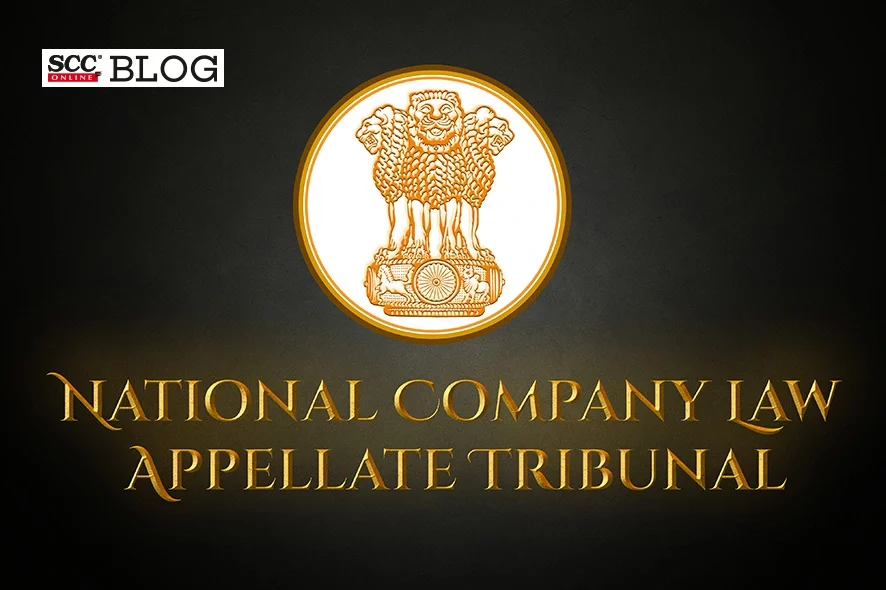National Company Law Appellate Tribunal: A Division bench comprising M. Venugopal, J., and Shreesha Merla* (Technical Member), held that the owed amount should be a direct disbursal between the Financial Creditor and the Corporate Debtor to construe the same as a ‘Financial Debt’ under S. 5(8) of the Insolvency and Bankruptcy Code, 2016 (IBC).
Factual Matrix
In the instant matter, the appellant had loaned a sum of Rs. 1,40,00,000/- to the Directors of the Corporate Debtor via an ‘Investment Agreement’, where the intention of the Parties was that the said loan was for revival of the respondent company, in their personal capacity. When the respondent company made no efforts to repay the loan even after sending legal notice, the appellant preferred an application under S. 7 of the IBC seeking to initiate Corporate Insolvency Resolution Process (CIRP) against the respondent company.
The Adjudicating Authority vide order dated 18-07-2019 dismissed S. 7 application on the grounds that the appellant is not a Party to the ‘Investment Agreement’ and the Corporate Debtor did not make any Promise to repay the money to the appellant. Aggrieved by the impugned order passed by the Adjudicating Authority, the appellant preferred an appeal under S. 61 of the IBC challenging the same.
Moot Point
Whether the amount lent by the appellant to the Directors of the Corporate Debtor in their personal capacity via an ‘Investment Agreement’, can be construed as ‘Financial Debt’ under S. 5(8) of the IBC?
NCLAT’s Observation
The NCLAT observed that the Investment Agreement clearly states that the appellant had advanced the loan and the Properties of the Promoters of the Corporate Debtor Company were given as security. The Investment Agreement stipulates that once the Corporate Debtor is out of ‘Board for Industrial and Financial Reconstruction’ (BIFR), the loan is to be repaid with interest at 22 % p.a. and if the respondent failed to deregister itself from the ‘BIFR’ within one year of the Investment Agreement, the Properties given as security be used for the ‘recovery’ of the amount payable to the appellant. The NCLAT further observed that as the properties are in possession of the appellant and the appellant is free to sell the property towards repayment of the debt, therefore, it is for the Appellant to take steps for the recovery of the money.
While relying on Anuj Jain v. Axis Bank Ltd., (2020) 8 SCC 401, the NCLAT observed that for an amount to be construed as a ‘Financial Debt’ as defined under S. 5 of the IBC, the amount owed should be directly disbursement from the Financial Creditor to the Corporate Debtor, i.e., “the transaction should be a direct transaction between the Financial Creditor and the Corporate Debtor.”
Rejecting the appellant’s contention that the amount was paid under the instructions of the Corporate Debtor, therefore, should be construed as ‘Financial Debt’, the NCLAT observed that there is no evidence on record stating that the appellant had directly paid the amount to the Corporate Debtor and the same was acknowledged in the Corporate Debtor’s balance sheet as a ‘Promise to pay’.
The NCLAT observed that though it is not disputed that amount was taken as a loan by the Managing Director and Director, but the said transactions were never directly with the Corporate Debtor Company. The Court observed that “amounts taken by their Directors in their personal capacity, though used for the business purposes of the Company, will not fall within the ambit of the definition of ‘Financial Debt’ as defined under Section 5(8) of the Code.”
NCLAT’s Verdict
The NCLAT dismissed the appeal and held that since there is no evidence on Record to establish that the amount was directly lent to the Corporate Debtor by the Financial Creditor, therefore the same cannot be construed as ‘Financial Debt’. The NCLAT further held that the appellant is at liberty to recover the dues from the sale of the properties given as security.
[Actioncor Consultants (P) Ltd. v. Viprah Technologies Ltd., 2023 SCC OnLine NCLAT 298, order dated 01-06-2023]
*Judgment by Shreesha Merla (Technical Member)
Advocates who appeared in this case :
Mr. T.K. Bhaskar and P.J. Sri Ganesh, Counsel for the Appellant;







